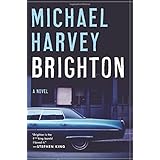
There's nothing like an absorbing audio book to take the stress out of a long trip, and when it's a fascinating piece of history, deftly written and perfectly narrated, then you know you've hit gold. I can't recommend this book enough.
"Hidden Figures, the American Dream and the Untold Story of the Black Women Mathematicians Who Helped America Win the Space Race," by Margot Lee Shetterly, read by Robin Miles, has only been out for two weeks and it's already on everybody's radar. Suddenly a once obscure name, Katherine Goble Johnson, is becoming a household word. And it's about time. https://crgis.ndc.nasa.gov/historic/Katherine_Johnson
Physicist Katherine Johnson received the Presidential Medal of Freedom last year at the White House. She was a precocious student, graduating from high school at the age of fourteen and moving right on to the freshman class at West Virginia State. What she went through to get her education though, was a travesty. Back in the '30's, Jim Crow was firmly ensconced in West Virginia. Since the black students weren't allowed to be educated in white schools, her parents had to separate, living 125 miles apart during the week, so that Katherine and her siblings could move beyond the 8th grade.
Katherine was not alone. There was Dorothy Vaughan, Miriam Mann, Christine Darden, Mary Jackson, and a host of other women, juggling marriages and children, who broke both gender and racial barriers. Shetterly http://nyti.ms/2dFSvLf masterfully delves into the early lives of each of the main characters, women who, without fanfare, worked with numbers at the Langley Research Center in Hampton, Virginia, in the 1940's.
They were called "computers," a disconcertingly neutral title that takes a while to adjust to if you're listening to the book. These women, white and black, were the Rosie the Riveters of the scientific community at NACA, a precursor to what we now call NASA. When first hired they assumed they would only be working until the "boys" came home from the war. How they made themselves indispensable, staying the course through the first manned space flight and the moon landing, is a tale of brilliance and fortitude.
Shetterly must especially be congratulated for writing about the most complex mathematical calculations, whether involved in testing jet engines or plotting the trajectory of a rocket's return to earth, in a way that even the most math-challenged readers will find appealing. And while she doesn't shy away from the incidents of racial prejudice that plagued the "computers," (they handled them with aplomb), she speaks equally to the gender prejudice that women in the sciences had to deal with. In fact, many of the Langley women generously mentored a new generation of female scientists through scouting and sorority work.
In January a film will be released based upon Shetterly's book and I'll admit that I'm looking forward to it with trepidation. "Hidden Figures" is a scholarly, deeply researched, historical record of importance. I watched the trailer for the film and worried that, with Octavia Spencer in the leading role as Dorothy Vaughan, she might play it for laughs rather than for the respectfulness it deserves. https://www.youtube.com/watch?v=vGAxf55sFLI
My advice, read the book first. Then, if the movie doesn't live up to expectations, you can revel in being one of those snobs who opines that "the movie NEVER measures up to the book."






